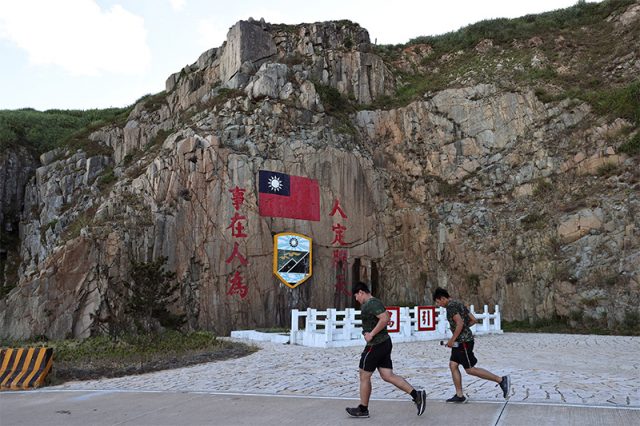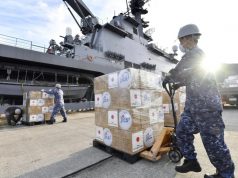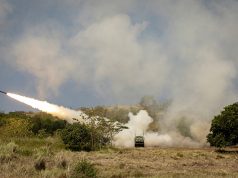
NANGAN/DONGYIN, Taiwan — On Taiwan’s windswept Matsu islands, close to China’s coast, one topic has been driving conversations in recent days: prospects of an invasion by China since it began military exercises in response to visits to Taiwan by U.S. lawmakers.
Held by Taiwan since the defeated Republic of China government fled to Taipei in 1949 after losing a Chinese civil war, the archipelago of small islands, less than 10 km (6.2 miles) from China’s coast at the closest point, would probably be an early target for Beijing in the event of conflict.
China, which claims Taiwan as its territory, has carried out extensive military exercises this month after a visit by U.S. House of Representatives Speaker Nancy Pelosi, who was followed by five U.S. lawmakers on Sunday and Monday.
Taiwanese forces have closely monitored China’s moves, scrambling fighter jets and deploying warships to keep guard against the Chinese navy.
While there has been no heightened sense of alarm among the people of Taiwan, the tension has highlighted the Matsu islands’ vulnerability.
“I don’t feel particularly safe – after all this island, Dongyin, would be the front line of the battlefield,” said Dora Liu, 27, from Dongyin island, the northernmost territory Taiwan controls and home to a major military base.
“A small island like ours could be taken down in a moment,” she said. “If there is a war, there would be no place to hide. No matter how many tunnels we have, if they really occupied us, there would be no use in having tunnels.”
The rocky Matsu islands, like the rest of Taiwan, have lived with the threat of Chinese invasion since 1949.
The islands were regularly bombarded by China at the height of the Cold War.
Today, they are a fashionable tourist destination, with hip coffee shops and boutique hotels, visitors being drawn by the islets’ stark natural beauty and wartime past.
Hope for communication
Though the military presence is much more low-key than it was at its height in the 1950s and 1960s, signs of conflict are all around, from old bomb shelters to propaganda signs hewn out of the rock with messages like “save our mainland compatriots”.
Chien Chun-te, 40, who runs a breakfast stall outside a market on the main island of Nangan, said the new crisis was more worrying than previous tension.
“I think a war is possible,” Chien said. “But I hope people in the two countries, and also both the governments, can communicate more. Having no communication would only lead to hatred.”
Despite the recent tension, the islands are brimming with tourists from Taiwan’s cities, an important plank for the local economy, and flights are hard to book.
Huang Tzu-chuan, 30, who works in communications in Taiwan’s Taoyuan city, opted to spend a month this summer working at a guesthouse in a village on Nangan overlooking a scenic bay.
Like most Taiwanese, Huang has followed the Chinese military drills closely and considered what his response would be in the event of war.
“If one day it really happens, I will of course fight for my country,” said Huang.
He drew a parallel between Taiwan’s challenges and the war in Ukraine after Russia invaded.
“We feel our relationship between Taiwan and China is just the same as theirs.”
—Reporting by Ann Wang and Aleksander Solum; Writing by Ben Blanchard









